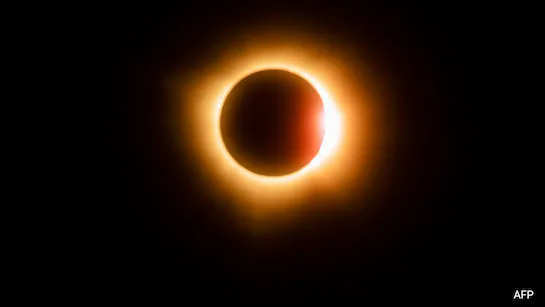When and how many solar eclipses will occur in 2025? Know with time and date whether Ring of Fire will be visible in India

Science News Desk – The last solar eclipse of the year occurred on 2 October. This was an annular solar eclipse that was observed across the Southern Hemisphere, including parts of Argentina and Chile. This type of solar eclipse occurs when the Moon passes between the Earth and the Sun, but does not completely cover the Sun’s disk. This happens because during this time the Moon is farthest from the Earth, due to which its size appears smaller and the Sun’s corona is visible. The Sun looks like a ring of fire in the sky, which is called ‘Ring of Fire’.
Now astronomers are waiting to see the next solar eclipse, which is going to happen in March next year. Like last October’s solar eclipse, the next eclipse will also cover only a part of the Sun. US space agency NASA has said that a partial solar eclipse is going to occur on March 29, 2025. It will be visible in Europe, Asia, Africa, North America, South America, and areas of the Atlantic and Arctic oceans.
What is solar eclipse?
A solar eclipse is an astronomical phenomenon that occurs when the Moon passes between the Earth and the Sun. When the Moon faces the Sun, its shadow falls on the Earth. During this time a unique sight is seen on earth. Solar eclipse occurs only during the full moon and it is of three types – total solar eclipse, annular and partial solar eclipse.
How many solar eclipses will there be in the year 2025?
Two solar eclipses are going to occur in the year 2025. Both will be partial solar eclipses. The first solar eclipse will take place on March 29. According to America’s Eastern Time Zone, it will start at 4.50 am and end at 8.43 am. The eclipse will be at its peak at 6.47 am. Indian Standard Time is about 10 and a half hours ahead of America’s Eastern Time Zone.

